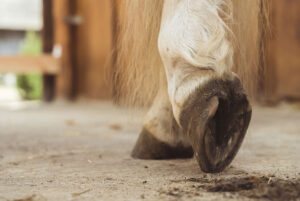Foal IgG (Antibody)
By Michael A. Ball, DVM, and Christina S. Cable, DVM
We will start this story on foal IgG with a more general discussion of the immunoproteins, or "Igs," in an effort to give a better understanding of what these terms stand for and the importance of what they do. The term IgG stands for "immunoglobulin" type G, sometimes referred to as gamma globulin G. The immunoglobulins, also known as antibodies, are a family of proteins that exist in the plasma component of the blood and other body fluids. Plasma is the clear, yellowish liquid component of the blood that can be observed when the red blood cells are removed.
The immunoglobulin family includes immunoglobulin "A" (IgA), immunoglobulin "G" (IgG), immunoglobulin "M" (IgM), and immunoglobulin "E" (IgE). All of the immunoglobulins play a role in the immune system’s defense mechanisms or, in the case of IgE, allergic reactions. Immunoglobulin "A" is present in high concentrations in secretions on mucosal surfaces and plays a role in the first line of defense from foreign invaders gaining access to the body via these surfaces. Immunoglobulins "G" and "M" are present in plasma and other body fluids and function in main line defense against foreign invaders of the body. Immunoglobulin "E" also is present in the plasma and other body fluids and plays a role in allergic reactions.
The immune system manufactures the immunoglobulins in response to exposure to a foreign invader. After exposure to a foreign invader, such as a specific virus, bacteria, or toxin produced by an organism, a certain type of lymphocyte (a type of white blood cell) produces the immunoglobulins. There actually are "sets" of immunoglobulins produced that recognize certain characteristics of the specific foreign invader. These specific immunoglobulins then bind to the foreign invader and in essence "mark" it for destruction by other components of the immune system. If the body has been exposed to that particular foreign invader previously, the immune system already has the specific immunoglobulins floating around in the body. In addition, the immune system already has been programed to provide defenses against that particular invader and can more rapidly produce additional immunoglobulins and other defensive mechanisms
Create a free account with TheHorse.com to view this content.
TheHorse.com is home to thousands of free articles about horse health care. In order to access some of our exclusive free content, you must be signed into TheHorse.com.
Start your free account today!
Already have an account?
and continue reading.
Related Articles
Stay on top of the most recent Horse Health news with


















